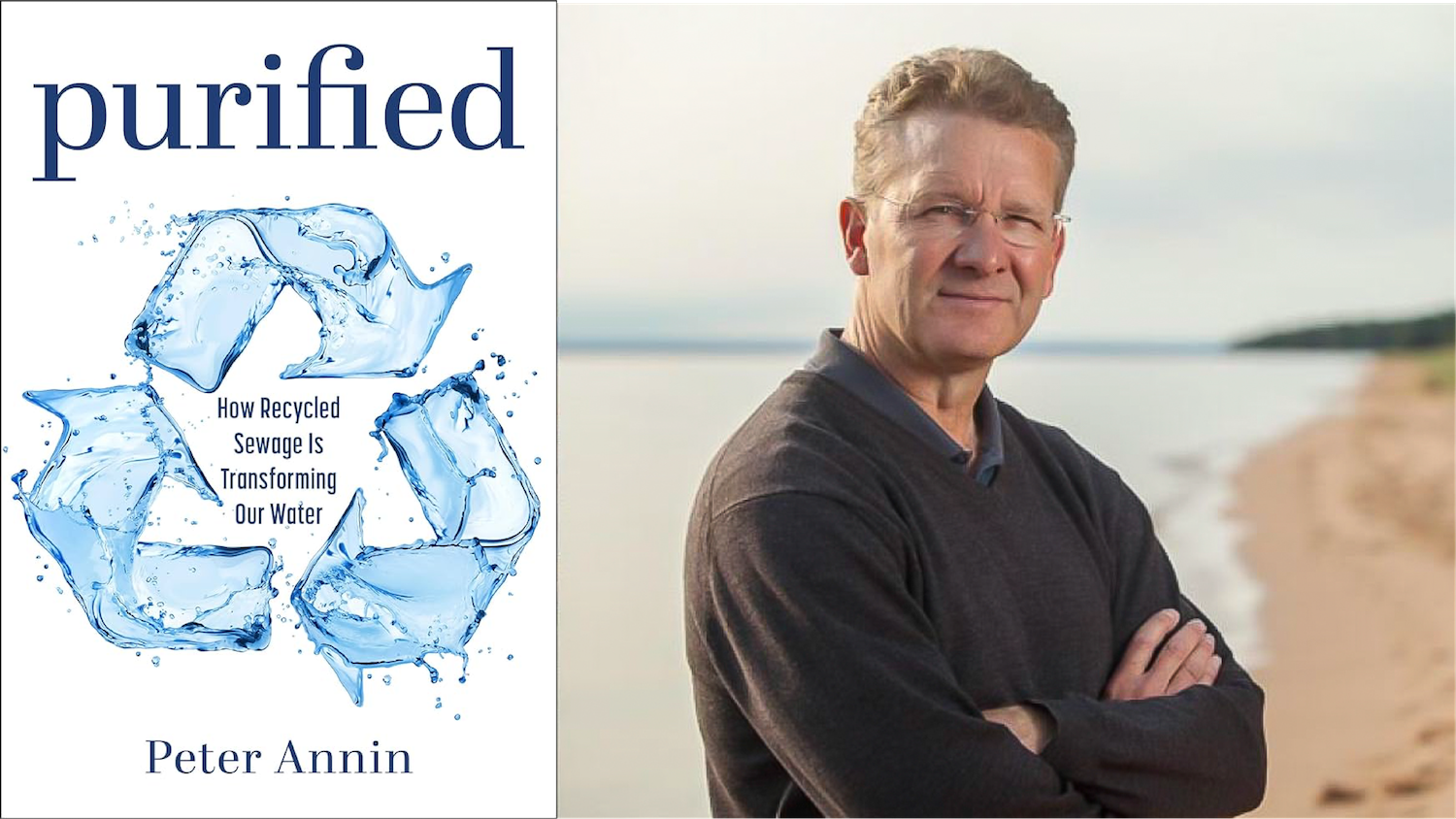How Recycled Sewage is Transforming Our Water Systems
Purified Book Cover and Peter Annin
Saturday, May 25th
Reception: 6:00pm, hearty appetizers and wine
Program: 7:00pm
Location: Madeline Island School of Arts
Cost: $35.00/person
RSVP Deadline: Friday, May 17th, or 100-person limit
Veteran water journalist Peter Annin shows that purified wastewater is the unexpected hero in America’s efforts to address water scarcity. He delves into the complex, sometimes controversial, water recycling movement, describing how it is playing out in key water-strapped states from California to Florida. He cuts through the fearmongering to show that the controversies around recycled water are based on misinformation, not facts, and that potable water has become the hottest frontier in the race for expanded water supplies. In the climate-change era, reuse has become an integral water supply option in many parts of the country, showing that water cannot be taken for granted anymore — and that includes sewage.
Peter Annin
Peter Annin, Director, Mary Griggs Burke Center for Freshwater Innovation, Northland College.
A veteran conflict and environmental journalist, Peter Annin spent more than a decade reporting on a wide variety of issues for Newsweek. For many years he specialized in coverage of domestic terrorism and other conflicts, including the bombing of the federal building in Oklahoma City and the Branch Davidian standoff outside Waco, Texas. He has also spent many years writing about the environment, including droughts in the Southwest, hurricanes in the Southeast, wind power on the Great Plains, and the causes and consequences of the “dead zone” in the Gulf of Mexico.
After his time at Newsweek, Annin became associate director of the Institute for Journalism and Natural Resources, a nonpartisan national nonprofit that organizes educational fellowships for midcareer environmental journalists. In September 2006 he published his first book, The Great Lakes Water Wars, which has been called the definitive work on the Great Lakes water diversion controversy, and received the Great Lakes Book Award for nonfiction in 2007. From 2010 to 2015 Annin served as managing director of the University of Notre Dame's Environmental Change Initiative, which targets the interrelated problems of invasive species, land use, and climate change, focusing on their synergistic impacts on water resources.
In 2018, Annin published an extensively revised and updated edition of Water Wars which was recognized with a Great Lakes Leadership Award in Communication Excellence from the Great Lakes Protection Fund in 2020.
He currently serves as director of the Mary Griggs Burke Center for Freshwater Innovation at Northland College in Ashland, Wisconsin. He has a bachelor's degree in journalism from the University of Wisconsin and a master's in international affairs from Columbia University in New York.
From the publisher, Island Press
In 2000, a transformative climate-driven “megadrought” swept over the Colorado River watershed. By the early 2020s, levels on the river’s two largest reservoirs were hitting record lows and threatening the water supply for forty million people. Outside the West, water stocks are stressed even in states with bountiful rainfall such as Florida. From coast to coast, conventional measures to sustain the most fundamental natural resource on earth—drinking water—are coming up short. Recycled water could help close that gap.
In Purified: How Recycled Sewage Is Transforming Our Water, veteran journalist Peter Annin shows that wastewater has become a surprising weapon in America’s war against water scarcity. Annin probes deep into the water reuse movement in five water-strapped states—California, Texas, Virginia, Nevada, and Florida. He drinks beer made from purified sewage, visits communities where purified sewage came to the rescue, and examines how one of the nation’s largest wastewater plants hopes to recycle one hundred percent of its wastewater by 2035. At each stop, readers come face to face with the people who are struggling for, and against, recycled water. While the current filtration technology transforms sewage into something akin to distilled water—free of chemicals and safe to drink—water recycling’s challenge isn’t technology. It’s terminology. Concerns about communities being used as “guinea pigs,” sensationalist media coverage, and taglines like “toilet to tap” have repeatedly crippled water recycling efforts. Potable water recycling has become the hottest frontier in the race for expanded water supply options. But can public opinion turn in time to avoid the worst consequences?
Purified’s fast-paced narrative cuts through the fearmongering and misinformation to make the case that recycled water is direly needed in the climate-change era. Water cannot be taken for granted anymore—and that includes sewage.



















